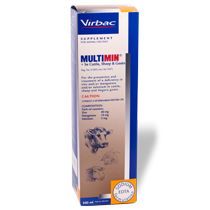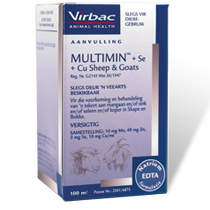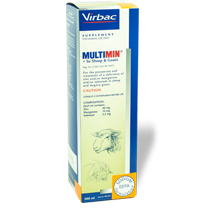Get your rams performance ready for the breeding season
Trace minerals – such as copper, manganese, selenium, zinc, and chromium – play critical roles in biochemical processes, and are key components of a ram’s health, productivity, and reproduction (Suttle, 2010). Studies have found that the provision of trace minerals, such as selenium and zinc, can have a positive effect on sperm concentration, motility, and morphology in rams (Ghorbani et al., 2018 and Piagentini, 2017).
In rams and billies, specific trace minerals have specific functions:
Grazing rams primarily receive trace minerals through forages; however, these sources often do not meet ram requirements due to variations in soil composition (Smart et al., 1981). In these instances, producers commonly supplement the diet of the animals through licks or complete rations, which normally contains trace minerals. Even so, the bioavailability of trace mineral sources can still vary due to the chemical form as well as interactions with other minerals and feed components within the gastrointestinal tract (Spears, 2003).
An injectable trace mineral provides the opportunity to supplement trace minerals that completely bypass the gastrointestinal tract, and thus avoid the complex ruminal interactions. Also, a multi-element injectable trace mineral allows for targeted delivery of a specific amount to individual animals (Arthington et al., 2014), and eliminates the variability associated with voluntary intake of licks or complete feed (Arthington and Swenson, 2004).
Trace mineral requirements also increase during certain critical events such as breeding. Giving Multimin® to rams before breeding is an effective way of achieving optimal trace mineral status, and research has shown a positive effect on reproductive performance.
Source: Agriorbit
The length of the seminiferous cycle and spermatogenesis are important considerations for the timing of treatment. In rams, the length of the seminiferous cycle is 10.6 days, while the complete process of spermatogenesis is 47 days. Therefore, should rams be treated with Multimin® 6 – 8 weeks before breeding to ensure the complete integration of trace minerals into the spermatozoa.
Optimise flock productivity by ensuring your rams are performance-ready – use Multimin® as a timed injection to top up your rams!




